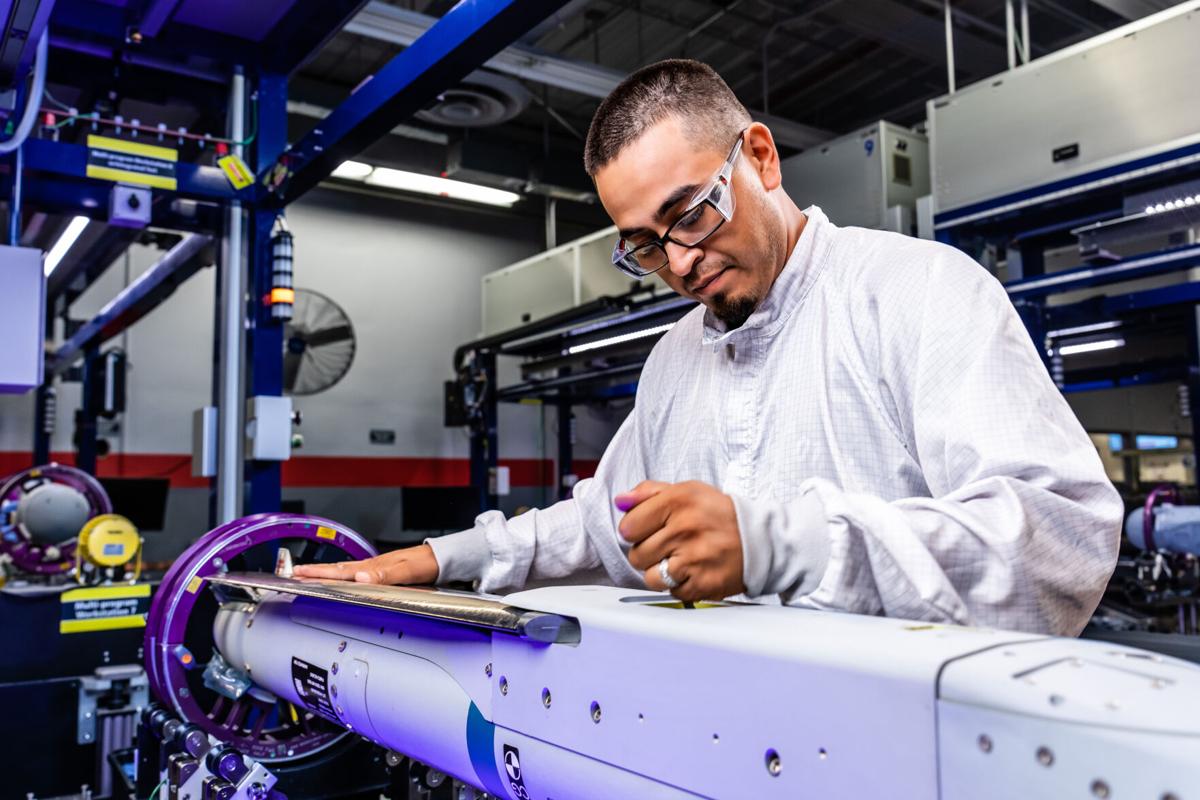Shares in RTX Corp. rose Tuesday after the company reported higher fourth-quarter revenue and profits on strong sales at its commercial aviation units and continuing growth at its Raytheon defense business.
The Virginia-based parent of Tucson defense contractor Raytheon posted adjusted sales of $19.9 billion in the fourth quarter, up 10% from the same period in 2022, and adjusted net income of $1.75 billion or $1.29 per share, a year-over-year increase of 2%.
Those results beat Wall Street analysts’ average estimate of $9.7 billion in adjusted revenue and earnings per share of $1.24, according to Zacks Investment Research, and RTX shares rose more than 5% in trading on the New York Stock Exchange Tuesday.
The company’s Pratt & Whitney aircraft engine unit reported a 14% increase in fourth-quarter sales to $6.44 billion, while adjusted operating profits rose 25% to $405 million, on a 20% increase in commercial original equipment sales and an 18% increase in aftermarket sales.
RTX’s Collins Aerospace business reported fourth-quarter sales of $7.1 billion, also up 14% from the same period in 2022, while adjusted operating profit rose 22% to $1.04 billion, with commercial aftermarket sales up 23% from the same period in 2022.
Raytheon posted fourth-quarter sales of $6.9 billion, up 3% percent versus the same quarter in 2022, mainly driven by higher volume on advanced technology and air-power programs, the company said.
Raytheon recorded adjusted operating profit of $618 million, up 8% versus fourth-quarter 2022, which had included a $42 million charge related to a divestiture.
The profit increase was mainly due to higher volume and lower operating expenses, partially offset by unfavorable net program efficiencies.
Major Raytheon contract bookings in the fourth quarter included $2.8 billion for production of Patriot Guidance Enhanced Missiles (GEM-T), $1.3 billion of classified bookings; $408 million for the developmental Hypersonic Attack Cruise Missile and $343 million for StormBreaker guided bombs.
For all of 2023, RTX posted sales of $68.9 billion, up 3% percent versus prior year, reflecting the impact of charges the company took related to defective powder metal used in engines made by its Pratt & Whitney unit that led to a recall of engines used in many airliners.
In the third quarter, RTX took a $5.4 billion charge to reflect costs associated with the engine problem, which the company estimated would cost about $7 billion.
RTX posted full-year earnings per share of $2.23, down 36% from 2022, including the impact of the Pratt powder metal matter.
Without the charges, RTX reported adjusted earnings of $5.06 per share, up 6% from the prior year.
RTX issued an outlook for 2024 calling for sales of between $78 billion and $79 billion, and adjusted earnings of $5.25 to $5.40.
The company also repurchased $12.9 billion of its shares in 2023, including $10.3 billion in the fourth quarter, as it sought to return the shareholders savings realized from United Technologies Corp.’s acquisition of Raytheon Co. in 2020 to form what is now RTX.
Several weapon systems made by Tucson-based Raytheon Missiles & Defense are helping Ukraine fend off Russia's invasion.





